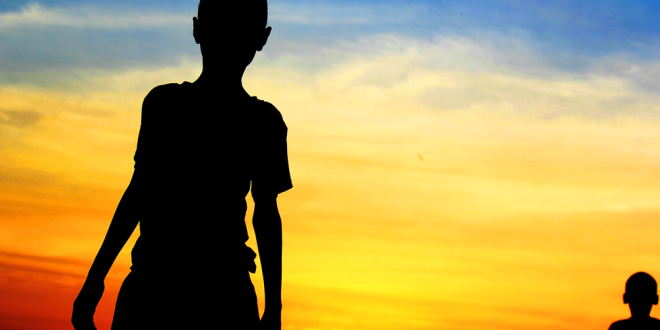(11 May 2017) On 5 May, police attached to the Interior Ministry of Planning and Urban Development, alongside joint forces of the riot police and National Intelligence and Security Services (NISS) demolished the Church of Christ in Soba area, Khartoum. The gathering rooms for youth and another for women were also destroyed. Soba area is primarily occupied by Southern Sudanese and internally displaced persons from South Kordofan.
Two parishioners, Poles Salah, (m), and Naji Abdalla, (m), were arrested by the joint forces after they attempted to take photos of the destroyed church. They were taken to the Political Department of the NISS offices near Shande bus station, where they were questioned and released after two hours.
The Church of Christ, established in 1989, is the only church remaining in Soba. Twelve churches in Soba were demolished between 2011, the year of Southern secession, and 2015. A local order within Khartoum prohibits the construction of new churches under the rationale that no new churches are needed due to the secession of South Sudan and the presumed exodus of ethnic Southerners, who were predominantly Christian.
ACJPS condemns in the strongest terms the demolition of the Church of Christ in Soba. We perceive the demolition to be solely an effort to rupture faith communities and places of worship. The demolition comes following a January 2017 announcement made by the local Khartoum government administration to demolish at least 27 churches within Khartoum, many of which are located on strategic plots of land, prompting suspicions that their closure is linked to ongoing crackdowns on religious minorities in Sudan but also to facilitate the sale of valuable land to investors. As of early May, the churches are still standing and the order is being challenged in court.
Sudan’s constitution and international human rights commitments guarantee the freedom of expression and freedom of religion. Article 31 of Sudan’s Interim National Constitution of 2005 provides that all persons are “equal before the law and are entitled without discrimination, as to race, colour, sex, language, religious creed, political opinion, or ethnic origin, to the equal protection of the law.” Article 38 further provides that “every person shall have the right to the freedom of religious creed and worship”.
During Sudan’s Universal Periodic Review in 2016, the Government of Sudan accepted recommendations to “ensure full respect for freedom of religion or belief and the human rights of the persons belonging to ethnic and religious minorities, in line with the international human rights law”.
Churches are often regarded by faith communities as an important part of the social fabric and cultural heritage of the community. The demolition places severe limitations on the capacity of members of ethnic and religious minorities to gather in Soba.
Background
The current climate of the environment for freedom of religion in Sudan demonstrates the internal contractions of Sudanese law and its incompatibility with Sudan’s diverse population and international commitments. International law strictly prohibits discrimination based on religion. The African Commission on Human and Peoples’ Rights, interpreting Sudan’s obligations under the African Charter, previously found in Amnesty International and Others v. Sudan that Sudan was in breach of its obligations under Article 8 of the Charter owing to legal and other restrictions that inhibit the ability of individuals to freely practice their own religion.
The realities facing religious minorities in Sudan such as Christians, and individuals with more heterodox views of Islam, fail to reflect legal commitments made by Sudan of equality before the law. This is particularly troubling in a state comprised of tremendous diversity in religious belief and ethnicity.
In a high profile case regarding a pastor and Darfuri activist currently serving twelve year sentences, ACJPS has learnt that a Darfuri detainee arrested sometime in February 2016 who was previously believed to have been disappeared has resurfaced in state custodies in Khartoum Bahri. The man is believed to have been detained initially in connection to this case. ACJPS continues to follow this case closely.
Although this case nominally revolved around espionage, it was widely viewed as motivated by perceived linkages between religion, ethnicity, and support to Sudan’s armed rebel groups, particularly in Darfur.
Attacks on churches by authorities have been linked to corruption scandals in the past and criticism of the central Government espoused by church leaders in the midst of ordered demolitions.
Restrictions on freedom of religion also extend to other religious minorities, non-believers, and Muslims with more heterodox views of Islam. The inclusion of hudud sentencing in the 1991 Criminal Act and the threat of death for the crime of apostasy paradoxically contradicts with Sudan’s constitutional provisions regarding the right to choose and practice one’s own religious beliefs.
For example, in December 2015, a group of 27 people, including at least three children and all members of the Hausa ethnic group, were tried for the crime of apostasy before a Khartoum court for following a form of Islam called Koranism, which recognises the religious authority only of the Koran and rejects the religious authority of the hadith. Members of the faith have been targeted for arrest and trial on death penalty charges in Khartoum on at least two other occasions in recent years.150 members of the faith were reportedly arrested and charged with apostasy in 2011 but renounced their faith at trial to avoid the death penalty. Four members of the group had already stood trial for apostasy in 2008.
ACJPS: Mossaad Mohamed Ali/ Emily Cody: +256 779584542/ +256 788695068 (Kampala), or info@acjps.org.
 African Centre for Justice and Peace Studies ACJPS | المركز الافريقي لدراسات العدالة و السلام
African Centre for Justice and Peace Studies ACJPS | المركز الافريقي لدراسات العدالة و السلام




